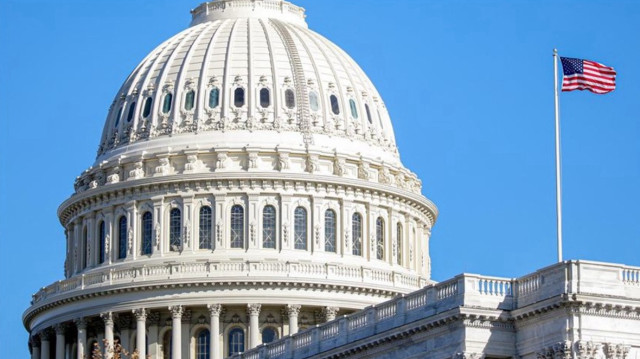
Senate delays, last-minute deals mark push for Trump's controversial tax, border, defense legislation
A marathon Senate vote on US President Donald Trump's controversial tax, border, and defense bill began Monday morning and continued overnight as Republicans race to meet a July 4 deadline to deliver the legislation to the president's desk.
The debate and the start of a marathon series of amendment votes, known as a vote-a-rama, allow Republicans to make final changes to the Senate tax bill while giving Democrats opportunities to challenge key issues and pressure GOP lawmakers ahead of upcoming campaign season.
As Trump set a deadline for its approval of July 4 – US Independence Day – Senate Republicans are carefully revising it to avoid disrupting the agreement, and the House must approve these changes before the bill goes to the president.
Senate Republicans advanced the legislation late Saturday after hours of delays and last-minute negotiations to secure enough votes, while Senate Democrats prolonged the process by forcing a full reading of the bill, which took nearly 16 hours before the debate began.
- Cuts to Medicaid, food stamps
The legislation – formally called the One Big Beautiful Bill Act – includes extensions of Trump's controversial 2017 tax cuts, tougher work requirements for Medicaid recipients, increased border security funding, and rollbacks of clean energy tax credits.
Democrats have focused their opposition on unpopular cuts to Medicaid (for people with low incomes) and food stamps as part of their challenge to the president's agenda.
Among the critics of the bill is billionaire Elon Musk, Trump's former ally and top campaign donor, who warned that cuts to electric vehicle and clean energy subsidies would be “incredibly destructive” and labeled the bill “political suicide for the Republican Party.”
Trump responded by accusing Musk of depending heavily on federal subsidies and said he would "head back home to South Africa" without them.
Most nationwide polls show widespread opposition to the bill, which the nonpartisan Congressional Budget Office has found sharply regressive – strongly benefiting the wealthiest Americans while hurting those with the least money.







